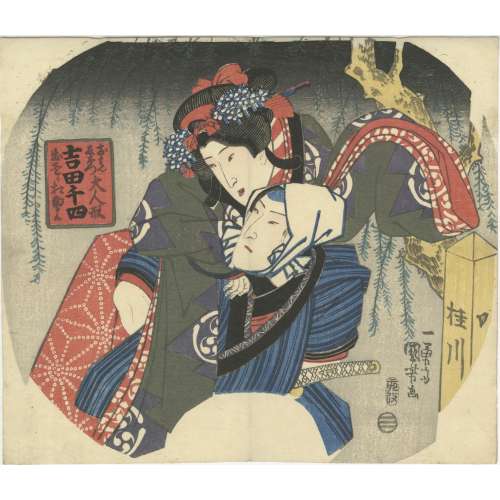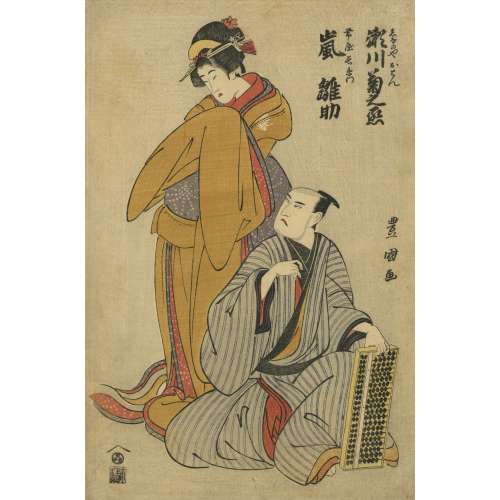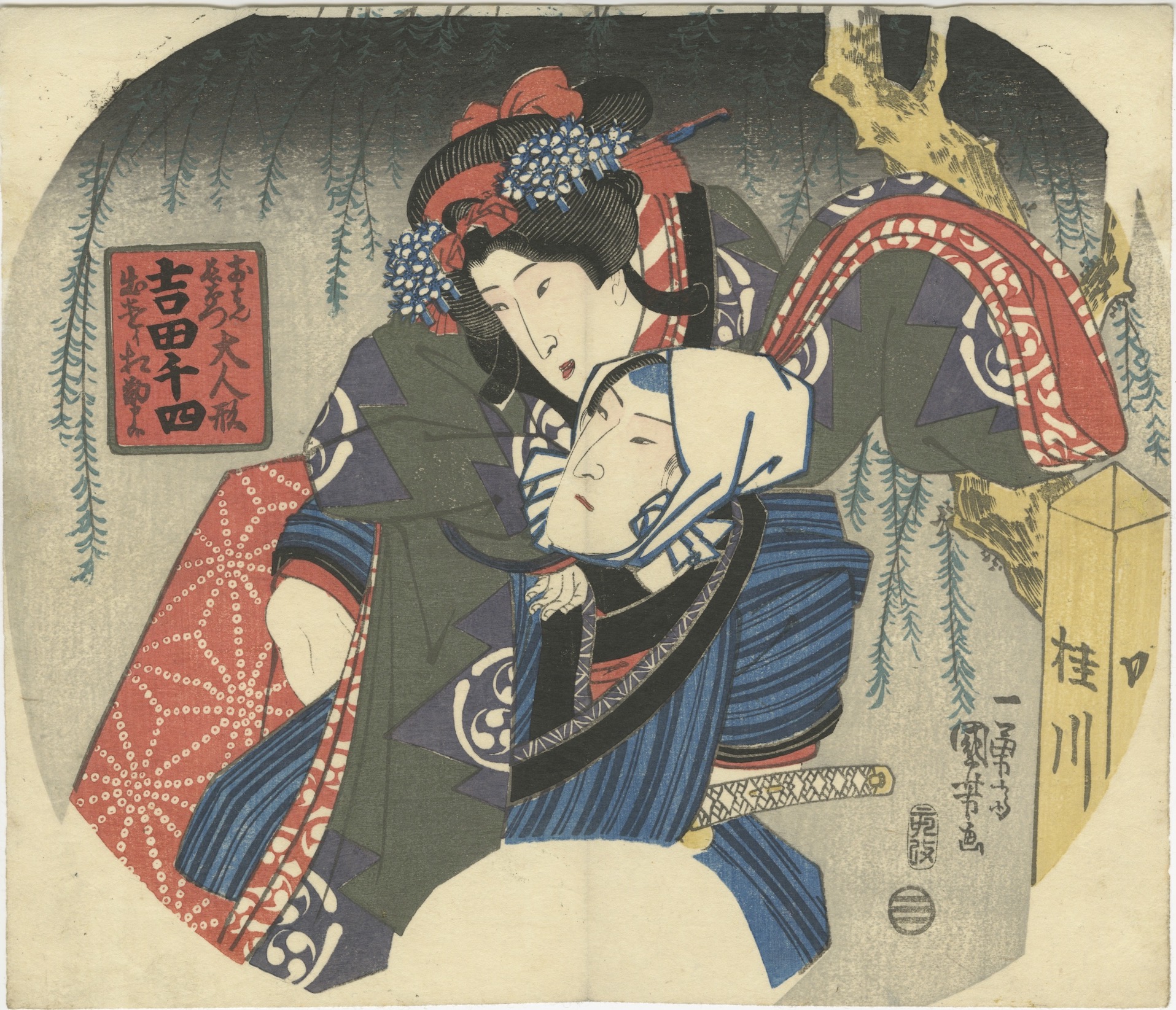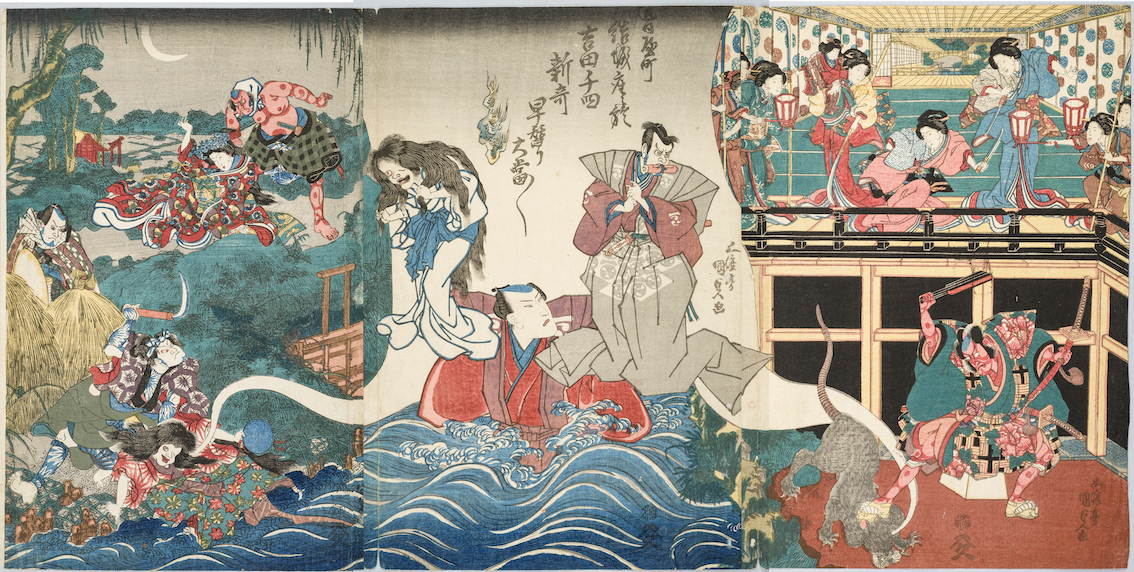 The design on our fan print looks very much like the one of Toyokuni I at MFA (Houston): OBJECT NUMBER 2006.378. "Seki Sanjuro as Obiya Choemon and Ichikawa Denzo as Ohan of the Shinonoya from the Kabuki Drama Katsuragawa renri no shigarami (Love Suicide of Ohan and Choemon at the Katsura River)", according to MFA-H published by someone Tsuruya in c. 1810 (though the publisher's seal is Suzuki Ihei [鈴木伊兵衛] (seal name Suzui [鈴伊]), Marks 01-028 | 502; the censor's seal is gyōji, date 1811-14).
The design on our fan print looks very much like the one of Toyokuni I at MFA (Houston): OBJECT NUMBER 2006.378. "Seki Sanjuro as Obiya Choemon and Ichikawa Denzo as Ohan of the Shinonoya from the Kabuki Drama Katsuragawa renri no shigarami (Love Suicide of Ohan and Choemon at the Katsura River)", according to MFA-H published by someone Tsuruya in c. 1810 (though the publisher's seal is Suzuki Ihei [鈴木伊兵衛] (seal name Suzui [鈴伊]), Marks 01-028 | 502; the censor's seal is gyōji, date 1811-14).
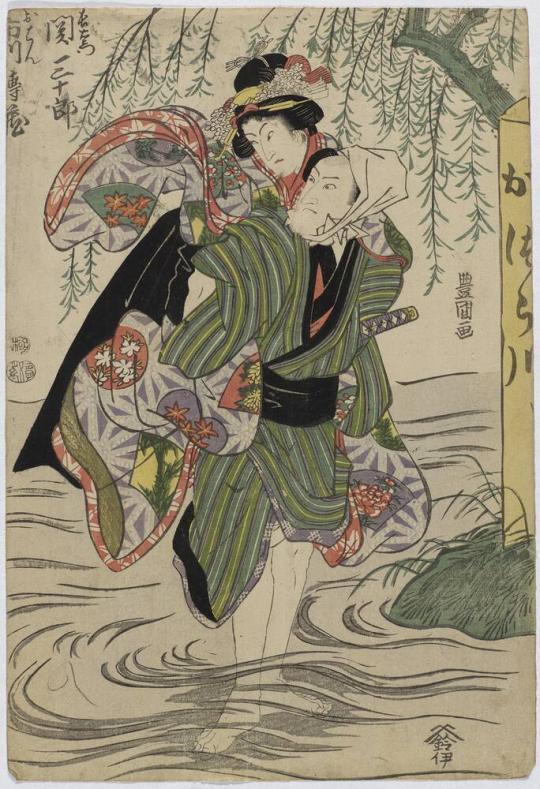 Interestingly enough, the description provided by Kuniyoshi Project is this "Actors: Onoe Kikugorô III as Shinanoya Ohan (おはん, female) and Ichikawa Ebizô V as Obiya Choemon (長右衛門, male). Play: Go chumon shusu no Obiya (御注文繻子帯屋). Date: 3rd month of 1840. Theater: Kawarasaki. Publisher: Iba-ya Sensaburô".
The play Go chumon shusu no Obiya was indeed staged at Kawarazaki theatre in 1840 (Tenpō 11), 3rd month; Ichikawa Ebizō V was indeed playing Obiya Choemon but Onoe Kikugorō III had the role of Kataoka Kōzaemon, not of Ohan, as can be seen on Kunisada's diptych at MFA (Boston): ACCESSION NUMBER 11.40671a-b.
Interestingly enough, the description provided by Kuniyoshi Project is this "Actors: Onoe Kikugorô III as Shinanoya Ohan (おはん, female) and Ichikawa Ebizô V as Obiya Choemon (長右衛門, male). Play: Go chumon shusu no Obiya (御注文繻子帯屋). Date: 3rd month of 1840. Theater: Kawarasaki. Publisher: Iba-ya Sensaburô".
The play Go chumon shusu no Obiya was indeed staged at Kawarazaki theatre in 1840 (Tenpō 11), 3rd month; Ichikawa Ebizō V was indeed playing Obiya Choemon but Onoe Kikugorō III had the role of Kataoka Kōzaemon, not of Ohan, as can be seen on Kunisada's diptych at MFA (Boston): ACCESSION NUMBER 11.40671a-b.
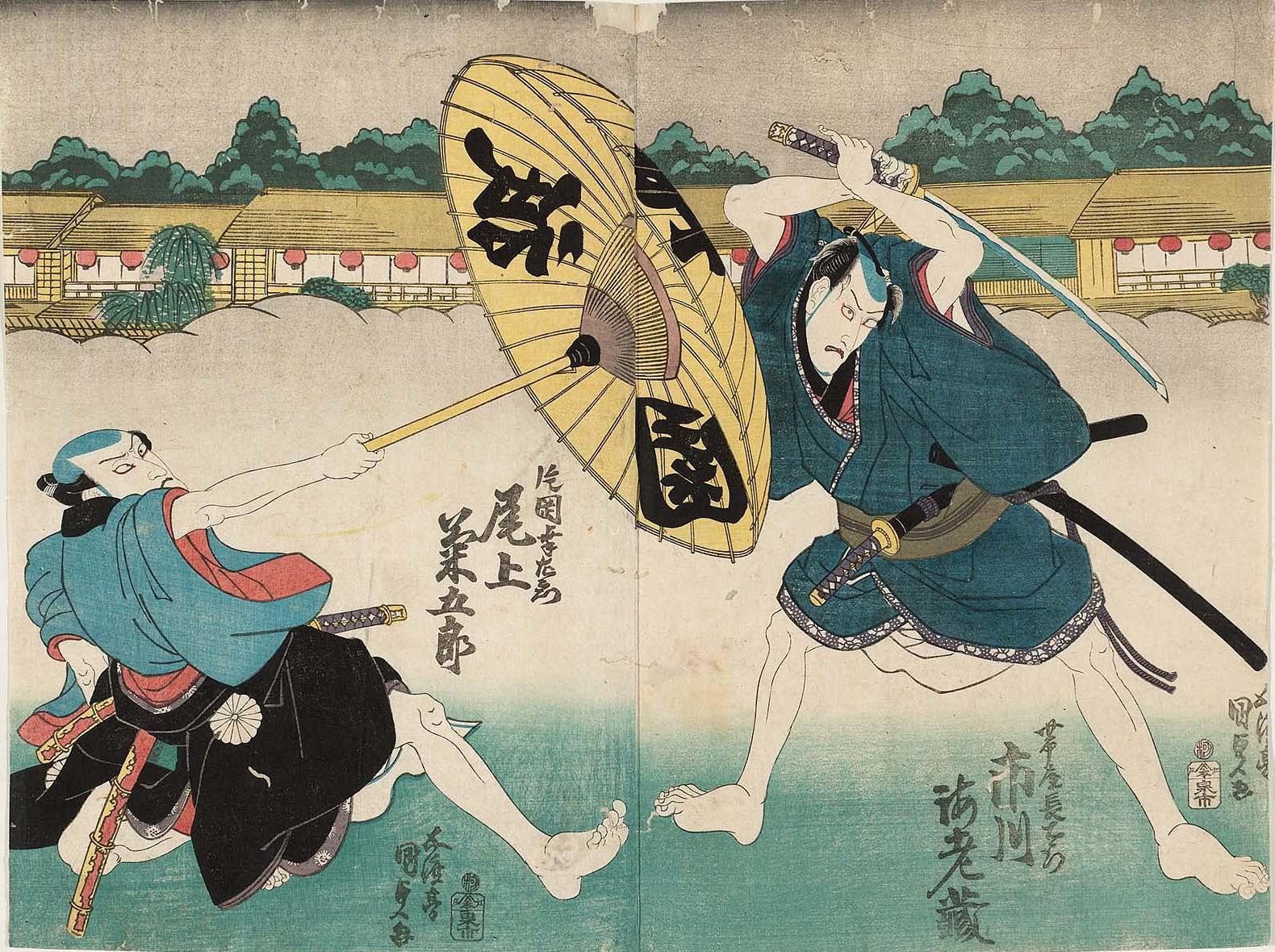
Actors Ichikawa Ebizô V as Obiya Chôemon (R) and Onoe Kikugorô III as Kataoka Kôzaemon (L)


